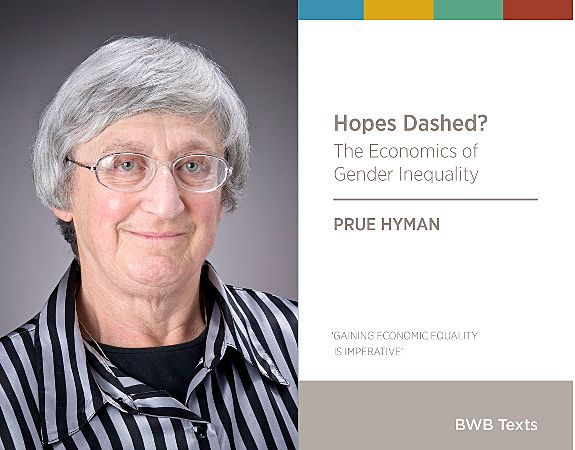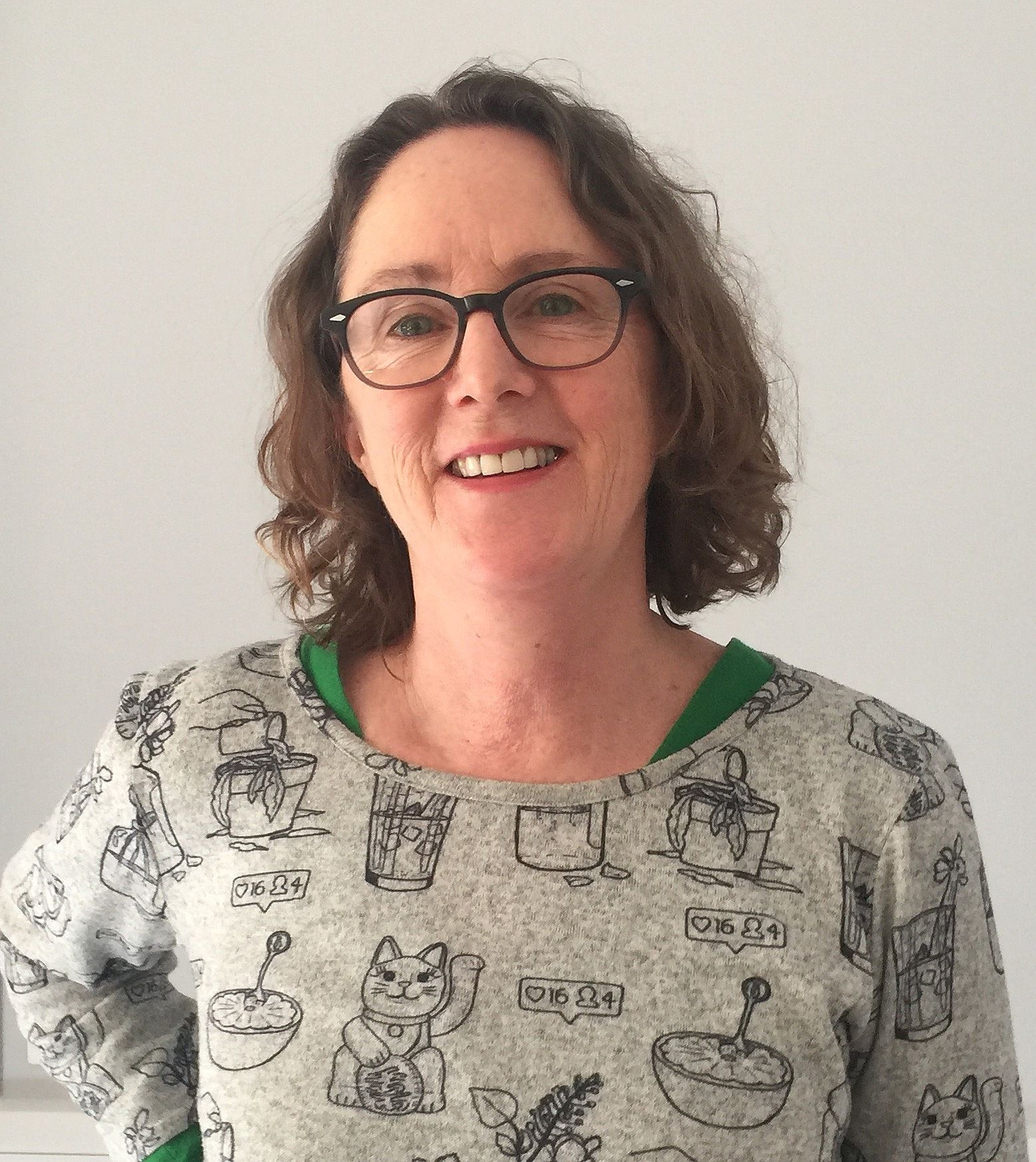It's About You: A review of Hopes Dashed? The Economics of Gender Inequality
Lynn Davidson wondered if she was the right person to review Hopes Dashed? by Prue Hyman, but found her life and struggles mirrored by Hyman's important work.
Lynn Davidson wondered if she was the right person to review Hopes Dashed? The Economics of Gender Inequality by Prue Hyman, but found her life and struggles mirrored by Hyman's important work.
Hopes Dashed? The Economics of Gender Inequality by feminist, economist and academic Prue Hyman is one of Bridget Williams Books' ‘short books on big subjects’; the goal is to provide a text both accessible and rigorously researched. In 1994 Hyman published Women and Economics, which looked at the position of women in the New Zealand economy. Hopes Dashed? follows up on this book and asks how gains made in gender equity are reflected in the market place, and in the recognition of unpaid domestic work. The answer to this question is somewhat reflected in the title of Hyman’s new work.
The book has five short chapters that look at unpaid work, paid work, moves towards equal opportunities, the importance of radical labour market policies, and possibilities for creating a more compassionate economy. Hyman describes the chapters on unpaid and paid work as the ‘core’ of the book and notes that the group most affected by the ‘undervaluation of unpaid work, disadvantaged by a society-wide gender bias and affected by inadequate governmental responses are sole parents on benefits.’ She adds that 84.2 per cent of sole-parent families are headed by women ‘with Māori and Pasifika overrepresented.’
I’m a bit in awe of economists that can do measured grown-up talk about madness-inducing circumstances.
I’m a bit in awe of economists that can do measured grown-up talk about madness-inducing circumstances. I feel the same sort of awe hearing intelligent people having rational discussions about the latest adolescent tweet-bomb from Trump. The voice in Hopes Dashed? is measured, but not too measured – sometimes the speaker leans forward in the chair.
Towards the end of the book Hyman suggests that ‘[e]ncouragement, advice and rewards for good behaviour are manifestly not enough’ to move towards equal outcomes for women and that ‘general policies have far more impact on the position of women than targeted ones.’ For instance, an increase in the minimum wage and the speedier implementation of a higher living wage would improve things for the low-paid, while a universal basic income would go some way towards recognising unpaid caring work.
I wasn’t sure I was the right person to review this book; I felt I didn’t understand economics – its language or its scope. However, as someone who was a single parent and who is a writer and teacher in the fun-sounding ‘gig economy,’ it shone a light on some familiar dark places; not least the mind-bending (to use the polite expression) difficulty of trying to transition into full time paid work after being on Sole Parent Support. From this book, it sounds like it hasn’t become any easier since the mid 90s when I was first attempting that transition.
In 1995 when the younger of my two children turned five I started looking for a full time job. I was keen to get off the Domestic Purposes Benefit, as it was known then, and back into the world. Quite quickly (those were the days!) I found a job at L V Martin and Son writing copy for their mail order catalogues. The Ngauranga Gorge office was open plan: a big cold room above the loading docks and a spaghetti of cords writhing over and under each desk to multi-plug power points. Also the roof leaked. But it was a job. And a writing job!
We were heading into winter when I started paid work. Although she was being left with a kind friend for before and after-school care, Tamara cried when I left. Along with the wrench of the daily parting, the reality was that after paying for petrol and childcare I was barely any better off. But I persevered. During my years on the DPB Ruth Richardson had introduced her ‘mother of all budgets’ and slashed benefits to an indefensible minimum. I had strong motivation to create a better life for my children and myself.
A benefit that is not quite enough to live on saves and abandons you at the same time. It is a net with a hole in it; you can’t help feeling like a fool to keep falling through it.
Tamara had cold after cold during that winter. When I picked up the kids after work, Elliot, who was eleven, would want to tell me about his day and sometimes it was a struggle to listen properly. One ragged night he asked me if I wished he didn’t live with me. Soon after that I got a call at work to say that Tamara had fallen off school playground equipment and broken her arm. I put down the phone and handed in my notice.
In the brief few seconds between talking to the school and handing in my notice I asked myself, ‘Why am I doing this job?’ The answer was because I wanted to earn more money, my own money, and I wanted my autonomy back. But there was another reason lurking; I had felt pressured to go back to work from the always less-than-subtle WINZ. It humiliated me because I already felt like a failure to be on the DPB – a benefit that is not quite enough to live on saves and abandons you at the same time. It is a net with a hole in it; you can’t help feeling like a fool to keep falling through it.
My children had overseas holidays and skiing trips with their Dads and I’m truly pleased that they did – it helped them to know what was possible in their lives – but meanwhile, with me, they often had carrots in their lunchbox instead of apples because carrots were cheaper. What a strange life it must have been for them.
As Hyman points out, ‘The benefit-system poverty trap has been analysed for decades, but never solved.’ I did eventually spring the trap. I found a job I loved – a job that worked with school holidays and one in which children were not culturally outlawed. Thank you Whitireia Polytechnic, most especially the Creative Writing Programme! Now, in my 50s, I attempt to orchestrate a living for myself within the increasingly casualised teaching world. And that’s a can of worms.
We will not stop caring for our nearest and dearest when they need us. Even without pay. Even if it hampers opportunities for careers and home-ownership.
We will not stop caring for our nearest and dearest when they need us. Even without pay. Even if it hampers opportunities for careers and home-ownership. This is not fresh or surprising news. It is however an underground story and one that is astonishingly powerful, human and – when you think about it – uplifting. Policy has to acknowledge the value, including the monetary value, of carers generally and sole parents particularly. It has to address pay equity. As Hyman reiterates, a move towards true equity helps the men, women, and children of New Zealand.
In Hopes Dashed? Hyman asks questions about the way the economy is measured, and suggests that ‘traditional indicators such as GDP are inadequate to handle the assessment of value in the unpaid realm.’ She questions why, against all evidence, the idea of growth is still held as a measure of success: ‘The question of whether growth can or should continue in a finite world threatened by environmental destruction and climate change cannot be separated from all economic issues.’ Hyman continues that ‘[b]eing open to new ideas for measuring value will be integral to the development of a compassionate economy where we can all live well, now and in the future.’
I heard an interview recently with the wonderful Indian writer and activist, Arundhati Roy. In it she said that after she writes an essay she always goes back through it to take out some of the rage. I’ve tidied up some of the rage in this piece too. My rage makes me think that Prue Hyman’s book is important because of what it makes you think about, remember and consider. Buy this little book with its big subject. It’s a good moment to read it. Buy the book. It’s about you.
Feature Image: "European Union 2015" by European Parliament. Used under a CC BY-NC-ND license.


